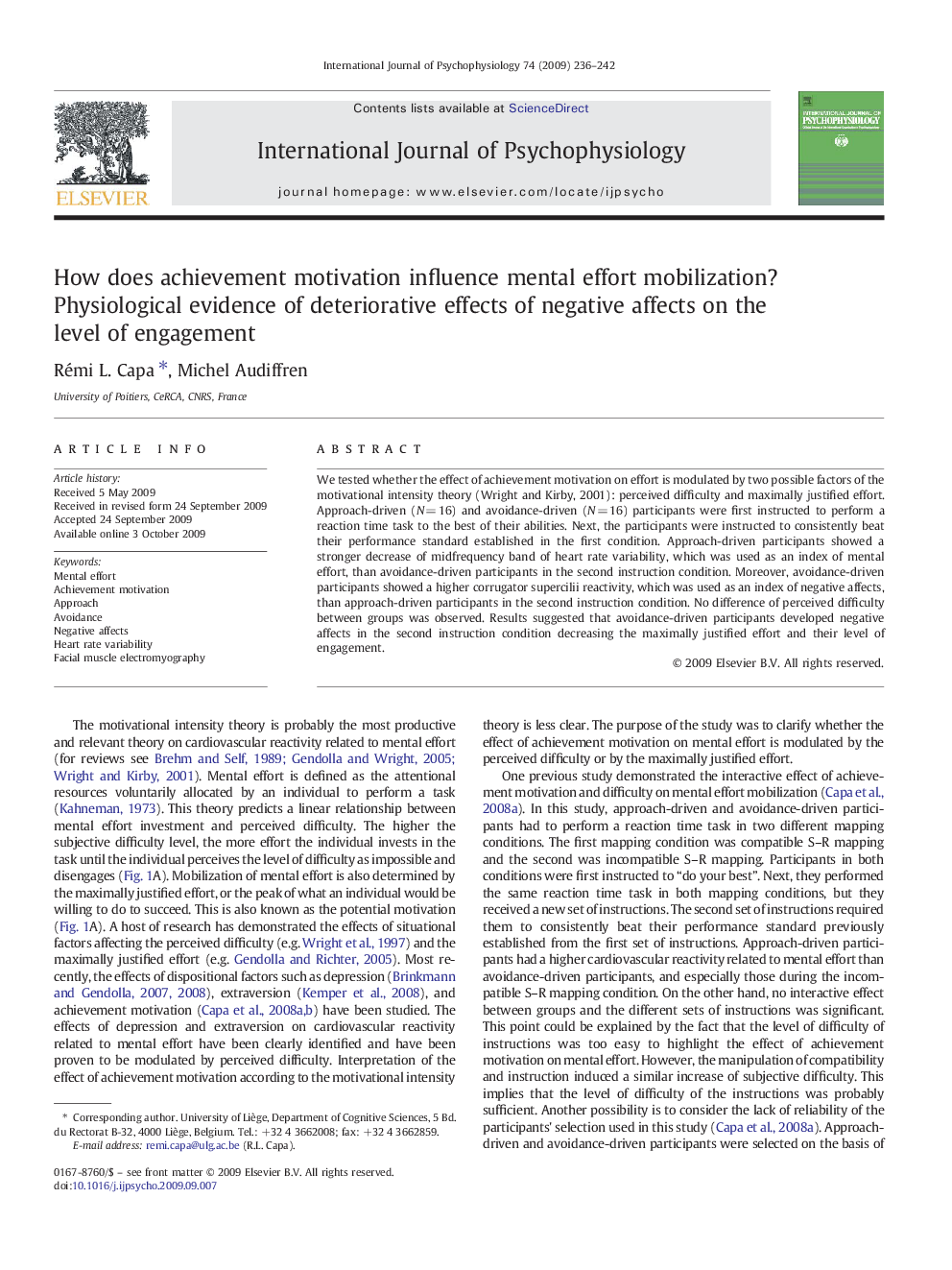ترجمه فارسی عنوان مقاله
چگونه انگیزه پیشرفت بسیج تلاش ذهنی را تحت تاثیر قرار میدهد؟ شواهد فیزیولوژیکی اثرات بدتر شونده احساس منفی بر روی سطح تعامل
عنوان انگلیسی
How does achievement motivation influence mental effort mobilization? Physiological evidence of deteriorative effects of negative affects on thelevel of engagement
| کد مقاله | سال انتشار | تعداد صفحات مقاله انگلیسی |
|---|---|---|
| 75765 | 2009 | 7 صفحه PDF |
منبع

Publisher : Elsevier - Science Direct (الزویر - ساینس دایرکت)
Journal : International Journal of Psychophysiology, Volume 74, Issue 3, December 2009, Pages 236–242
ترجمه کلمات کلیدی
تلاش ذهنی؛ انگیزه پیشرفت؛ رویکرد؛ اجتناب؛ احساس منفی - ضربان قلب؛ الکترومیوگرافی عضلات صورت
کلمات کلیدی انگلیسی
Mental effort; Achievement motivation; Approach; Avoidance; Negative affects; Heart rate variability; Facial muscle electromyography

